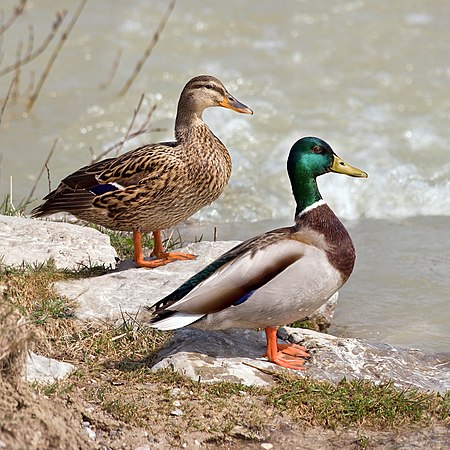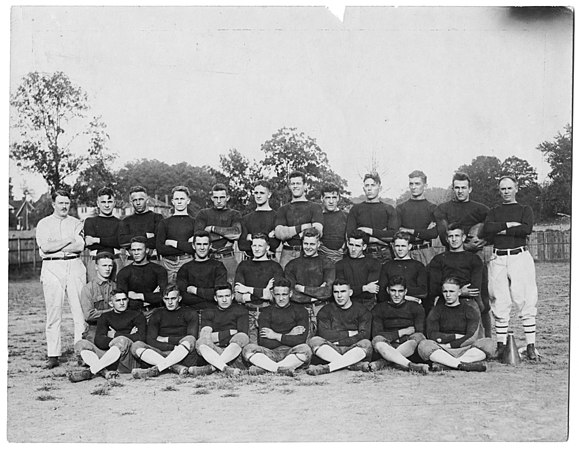Wikipedia:Wikipedia Signpost/Single/2017-07-15
French chapter woes, new affiliates and more WMF team changes
There have been fresh developments in an ongoing controversy within the leadership of the Wikimedia France chapter (WMFR). At the centre is the management and governance of the chapter, including conflicts of interest, board resignations, resignations by volunteer project leaders, the dismissal of staff, and the expulsion of members. Some 70 members have signed a call for an early general assembly, which is now being scheduled.
Threads on French Wikipedia's Bistro (a central discussion point for editors) have raised related issues on 26 and 27 June; many further discussions regarding WMFR have occurred since 8 July. Several chapter members have developed a timeline (in French, English translation available) of events dating back to 2013; the hashtag #wmfrgate has been used on Twitter.
In an email, forwarded to the Wikimedia-l mailing list by Chris Keating, five of the seven WMFR board members describe their view of the situation. According to Keating:
Topics covered include:
- How WMFR feels community members are "destabilising and denigrating" the chapter, and how Wikimedia France is responding by expelling some of those people from the organisation, threatening them with legal action, and temporarily closing its email discussion list
- Accusations that Christophe Henner has personally manipulated the FDC [Funds Dissemination Committee] process to cut WMFR's funding
- Also, a statement from WMFR that the WMF is also considering withdrawing WMFR's chapter agreement
The Wikimedia Foundation has responded to the email. Katy Love, Director of Resources, writes:
| “ | We find many aspects of this public email disturbing and contrary to the values of the Wikimedia movement. ... The current situation with Wikimédia France is creating great strain on the French community, former and current staff of Wikimédia France, and concerned volunteers around the world. We recognize that the situation must be resolved soon, in the interests of the Wikimedia projects and vision. | ” |
WMF staff will conduct a site visit, which will involve "working with Wikimédia France to initiate an independent governance review". Funding to WMFR is conditional on such a site visit and governance review, as well as making progress on implementing the resulting recommendations.
Wikimedia Foundation Communications Director, Juliet Barbara, told the Signpost:
Allegations about the FDC process in Wikimédia France’s recent email to its membership have no merit. They were rejected by the Wikimedia Foundation Board, which strongly endorsed the results and independence of the FDC process and denied Wikimédia France’s appeal of that recommendation. Based on his past relationship with Wikimédia France, Christophe was not present during any FDC discussions related to WMFR at the Round 2 discussions held in May.[1] He also formally recused himself[2] from the Board’s investigation and handling of Wikimedia France’s appeal and abstained from voting on the Wikimédia France section of the Board's resolution.
WMF team changes
Following on from last month's changes (see previous Signpost coverage), Trevor Parscal has announced some further adjustments on the Wikitech-l mailing list. The Language and Collaboration teams merged to become the Global Collaboration team. Runa Bhattacharjee will manage the combined team. Meanwhile, Dan Garry joined the team responsible for editing tools like VisualEditor, now renamed the Editing team. This allows James Forrester to "step away from his 5-year stint as the Product Manager for VisualEditor and focus on leading product for Contributors".
Brief notes
- New user-groups: The Affiliations Committee announced the approval of this week's newest Wikimedia movement affiliates, the Wikipedia Library User Group and the Hindi Wikimedians User Group.
- New administrators: The Signpost welcomes the English Wikipedia's newest administrators, Anarchyte and GeneralizationsAreBad.
- Milestones: The following Wikipedia project reached milestones: 5,000 – North Frisian (3 July 2017)
- Movement strategy update: The summary of the Wikimedia Movement Strategy Cycle 2 discussions is now available on Meta. You can join the Cycle 3 discussions regarding identified challenges, which take place weekly until the end of July.
- Final annual plan: The final version of the WMF's 2017/18 Annual Plan was approved by the Board of Trustees on June 16th, and has been published on Meta.
- Wikimedia Conference Report: The grant report for the Wikimedia Conference 2017 is available on Meta, along with session documentation.
Footnotes
Spectacular animals, Pine Trees screens, and more
Featured articles
Fourteen featured articles were promoted this week.
- The Inaccessible Island rail (nominated by Sabine's Sunbird) is a small bird of the rail family, Rallidae. It is the only species in the genus Atlantisia. Endemic to Inaccessible Island in the Tristan Archipelago in the isolated south Atlantic, it is notable for being the smallest extant flightless bird in the world.
- "Mother's Day" (Rugrats) (nominated by Aoba47) is the second episode of the fourth season of the American animated television series Rugrats and the show's 67th episode overall. Released as a Mother's Day special, it revolves around the holiday from the perspective of a group of babies as they attempt to find the perfect mother for Chuckie, while sharing their favorite memories about their moms. "Mother's Day" was praised by critics and has been the subject of several retrospective reviews for its treatment of the death of a parent.
- The Million Second Quiz (nominated by Bcschneider53) is an American game show that was hosted by Ryan Seacrest and broadcast by NBC. The series aired from September 9 to September 19, 2013. For a titular million seconds (11 days, 13 hours, 46 minutes, and 40 seconds), contestants attempted to maintain control of a "money chair" by winning trivia matches against other contestants, earning money for every second they occupied the chair. The quiz was dubbed "The Olympics of quiz." Critics argued that the confusing format of The Million Second Quiz, along with its lack of drama and technical issues with the show's app during the first days of the series, caused viewers to lose interest in watching it on air. Although peaking at 6.52 million viewers for its premiere, ratings steadily dropped during the show's run before rising again near the finale.
- The Illinois Centennial half dollar (nominated by Wehwalt) is a commemorative fifty-cent piece struck by the United States Bureau of the Mint in 1918. The coins were minted in August 1918, and were sold to the public for $1 each. All sold, though many were held by a bank until 1933. Later writers have generally admired the coin, considering it one of the more handsome American commemoratives. The coin is valued in the hundreds of dollars today, though exceptional specimens may trade for more.
- Coalhouse Fort (nominated by Prioryman) is an artillery fort built in the 1860s to guard the lower Thames from seaborne attack. It stands at Coalhouse Point in Essex on the north bank of the river, at a location near East Tilbury that was vulnerable to raiders and invaders. Decommissioned in 1949, the fort was used for a time as a storehouse for a shoe factory before it was purchased by the local council. Since 1985 it has been leased to a voluntary preservation group, the Coalhouse Fort Project, which has been working to restore the fort and use it for heritage and educational purposes. Funding for its restoration has been provided in part by the Heritage Lottery Fund and the Warner Bros. film studio, which used the fort as a location for the opening scenes of the 2005 film Batman Begins.
- The Guadeloupe amazon (nominated by FunkMonk) is a hypothetical extinct species of parrot that is thought to have been endemic to the Lesser Antillean island region of Guadeloupe. According to contemporary descriptions, the head, neck and underparts of the Guadeloupe amazon were mainly violet or slate in colour, mixed with green and black, the back was brownish green, and the wings were green, yellow and red. The bird fed on fruits and nuts, and the male and female took turns sitting on the nest. It was eaten by French settlers, who also destroyed its habitat. Rare by 1779, it appears to have become extinct by the end of the 18th century.
- The red-billed tropicbird (nominated by RileyBugz and Cas Liber) is a tropicbird, one of three closely related species of seabird of tropical oceans. Superficially resembling a tern in appearance, it has mostly white plumage with some black markings on the wings and back, a black mask, and a red bill. This species ranges across the tropical Atlantic, eastern Pacific, and Indian Oceans. Birds of all ages feed on fish and squid, catching them by diving from the air into the water. However, the red-billed tropicbird sometimes follows surface-feeding predators. The predators will drive the prey to the surface, which are then seized by the tropicbird.
- Leelah Alcorn (nominated by Midnightblueowl) was an American transgender girl whose suicide attracted international attention. Alcorn had posted a suicide note to her Tumblr blog, writing about societal standards affecting transgender people and expressing the hope that her death would create a dialogue about discrimination, abuse and lack of support for transgender people. LGBT rights activists called attention to the incident as evidence of the problems faced by transgender youth, while vigils were held in her memory in the United States and United Kingdom.
- The 250t-class torpedo boat (nominated by Peacemaker67) were high-seas torpedo boats built for the Austro-Hungarian Navy between 1913 and 1916. A total of 27 boats were built by three shipbuilding companies, with the letter after the boat number indicating the manufacturer. All 27 boats saw service in World War I, undertaking anti-submarine operations in the Adriatic Sea, shore bombardment missions along its Italian coastline, and convoy, and escort and minesweeping tasks. Although widely used during the war, the class suffered no losses, despite taking hits during surface engagements and damage from accidents. By 1940, thirteen boats of the class had been lost or scrapped
- The octopus (nominated by Chiswick Chap, Cwmhiraeth and LittleJerry) is a soft-bodied, eight-armed mollusc of the order Octopoda. Around 300 species are recognised and the order is grouped within the class Cephalopoda with squids, cuttlefish and nautiloids. Octopuses have a complex nervous system and excellent sight, and are among the most intelligent and behaviourally diverse of all invertebrates. The octopus is bilaterally symmetric with two eyes and a beak, with its mouth at the centre point of the arms. Octopuses inhabit various regions of the ocean, including coral reefs, pelagic waters, and the seabed; some live in the intertidal zone and others at abyssal depths. Most species grow fast, mature early and are short lived.
- Super Mario Bros.: The Lost Levels (nominated by Czar) is a 1986 side-scrolling, platform video game developed and published by Nintendo as the first sequel to their 1985 bestseller Super Mario Bros.. The title is known for its intense difficulty, which contributes to its reputation as a black sheep in the franchise. Reviewers viewed The Lost Levels as an extension of the original release, especially its difficulty progression. The Lost Levels was the most popular game on the Disk System, for which it sold about 2.5 million copies. It is remembered among the most difficult games by Nintendo and in the video game medium, and among the least important games in the Mario series.
- Boogeyman 2 (nominated by PanagiotisZois) is a 2007 American supernatural horror film edited and directed by Jeff Betancourt and the sequel to the 2005 film Boogeyman. It received mixed reviews from critics, although many of them considered it to be a general improvement over its predecessor. Attention was especially given to the human-like nature of the Boogeyman in the film, which reviewers felt was preferable to monsters in other contemporary creature features, including the previous film. Despite a mediocre commercial performance, recouping slightly less than its budget, the film received a sequel, Boogeyman 3, the following year.
- The decisive Battle of Kunersdorf (nominated by auntieruth) occurred on 12 August 1759 near Kunersdorf (Kunowice), immediately east of Frankfurt an der Oder. Part of the Seven Years' War, the battle involved over 100,000 men. An allied army commanded by Pyotr Saltykov and Ernst Gideon von Laudon that included 41,000 Russians and 18,500 Austrians defeated Frederick the Great's army of 50,900 Prussians.
- Cyclone Ada (nominated by Juliancolton) was a small but intense tropical cyclone that severely impacted the Whitsunday Region of Queensland, Australia, in January 1970. It has been described as a defining event in the history of the Whitsunday Islands, and was the most damaging storm in the mainland town of Proserpine's history at the time. Ada devastated multiple resort islands in the Whitsundays, in some cases destroying virtually all facilities and guest cabins. Based on the severity of the damage, wind gusts were later estimated at 220 km/h (140 mph). As Ada moved ashore, most homes were damaged or destroyed in communities near the storm's landfall point, including Cannonvale, Airlie Beach, and Shute Harbour. Extreme rainfall totals as high as 1.25 m (49 in) caused massive river flooding in coastal waterways between Bowen and Mackay. Ada killed a total of 14 people, and caused A$12 million in damage. The cyclone revealed inadequacies in the warning broadcast system, and served as the impetus for enhanced cyclone awareness programs that have been credited with saving lives in subsequent cyclones.
Featured lists
Six featured lists were promoted this week.
- Northamptonshire is a county in the East Midlands of England. It has an area of 236,700 hectares (914 sq mi) and a population estimated in mid-2015 at 723,000. As of May 2017, there are 18 Local Nature Reserves in Northamptonshire (nominated by Dudley Miles), and there is public access to all sites.
- The 2016 Atlantic hurricane season was the costliest, as well as the first above-average, Atlantic hurricane season in four years. It featured the highest number of deaths since the 2008 season and also yielded the highest number of named storm landfalls on the United States since that year. The season spanned from June 1 to November 30 (nominated by TropicalAnalystwx13). A total of 16 tropical depressions were recorded, of which 15 further intensified into tropical storms. Of those 15, a total of 7 strengthened into hurricanes, while 2 attained their peaks as major hurricanes.
- Madras is a 2014 Indian Tamil-language drama film written and directed by Pa. Ranjith. Released on 26 September 2014, the film garnered generally positive reviews and was a commercial success at the box office, It was included in The Hindu's top 20 Tamil-language films of the year. The film won 24 awards from 50 nominations (nominated by Ssven2); its direction, screenplay, performances of the cast members, music, and cinematography have received the most attention from award groups.
- Paradesi (English: Vagabond) is a 2013 Indian Tamil-language period drama film written, produced and directed by Bala. Paradesi was made on a budget of ₹400 million and was released on 15 March 2013 to critical acclaim, but failed at the box office. The film won 34 awards from 56 nominations (nominated by Ssven2); its direction, performances of the cast members, music, cinematography, and costumes have received the most attention from award groups.
- The Premier League Asia Trophy (nominated by Bloom6132) is a pre-season association football friendly tournament held in Asia every two years since its inception in 2003. It is "the only Premier League-affiliated competition".
- Valve Corporation is an American video game developer and publisher founded in 1996 by Gabe Newell and Mike Harrington. Valve Corporation's first video game was was Half-Life, a first-person shooter released in 1998. It received universal acclaim and sold over 9 million units in retail. Since then, Valve has released 33 other video games (nominated by The1337gamer), also to much critical success.
Featured pictures
Nine featured pictures were promoted this week, including the Pine Trees screens (Shōrin-zu byōbu, 松林図 屏風) a pair of six-panel folding screens (byōbu) by the Japanese artist Hasegawa Tōhaku (nominated by Theramin).
-
The Bolshoi Theatre, a historic theatre in Moscow, Russia
(created by DmitriyGuryanov and nominated by Étienne Dolet) -
La Punt - Chamues-ch is a railway station on the Engadin line (Pontresina–Scuol-Tarasp) in the Engadin valley of the eastern Swiss Alps in southeastern Switzerland.
(created by Kabelleger and nominated by Bruce1ee) -
The longnose batfish, a species of batfish found in the Atlantic Ocean
(created and nominated by Atsme) -
Suzzanna (1942–2008), an Indonesian actress
(created by Tati Photo Studios, Jakarta; restored and nominated by Crisco 1492) -
The spotted trunkfish is found in reefs throughout the Caribbean, as well as the south eastern Atlantic Ocean. The species gets its name from the black spots it has covered over its yellow-golden body.
(created by Betty Willis and nominated by Atsme)
Good articles
Apart from this featured content, a total of 133 good articles were promoted in the month of June, starting with The Blair Witch Project, Gus Grissom, and Badmotorfinger, and ending with Carroll Baker, G (New York City Subway service) and Citi Bike.
Concern about access and fairness, Foundation expenditures, and relationship to real-world politics and commerce
Concerns about unimpeded access to Wikipedia continue
Free-of-charge access and free-of-interference access to Wikipedia were the subjects of articles in a number of outlets – the libertarian magazine Reason, Harvard University's Harvard Magazine, the online magazine Slate.com, and the Canadian cultural magazine Vice. The Vice story provocatively suggested nullifying censorship of Wikipedia by disseminating Wikipedia via the dark web, a venue more often associated with porn, terrorism, and Bitcoin-fueled drug transactions.
In Reason, WMF's former legal counsel Mike Godwin wrote about how Everyone Should Be Getting Wikipedia for Free (June 4, 2017). Libertarians are skeptical of interference with free markets. In some cases, Internet providers have been choosing to lower rates or charge zero for Wikipedia access over their networks like Wikipedia Zero. But some call this a violation of net neutrality to favor one website, even if it is the global repository of the sum of all human knowledge. Godwin explains: "Internet providers should be able to experiment with giving subscribers free stuff, such as access to Wikipedia and other public information and services on their smartphones. Unfortunately, confusion about whether today's net neutrality regulations allow U.S. providers to make content available without it counting against your data plan—a practice called "zero-rating"—has discouraged many companies from doing so, even though zero-rating experiments are presumptively legal under today's net neutrality regulations."
The Berkman Klein Center for Internet & Society at Harvard University has a project that monitors Wikipedia access from various countries around the globe. Harvard Magazine's Alisha Ukani reports (June 29, 2017) on the Center's findings on access in China, Iran, Thailand, Uzbekistan and eleven other countries in research conducted since 2014. The study concluded that since WMF's implementation of across-the-board encryption using HTTPS, most countries faced with an all-or-nothing censorship decision have opted not to censor. The Center's director and a participant in the research said, "Wikipedia is one of the most prominent, and most important, sites out there," and states that it was the first, "complete empirical deep dive into incidents of the blocking of Wikipedia projects around the world".
A Slate blog post by Angelica Cabral titled "Wikipedia Seems to Be Winning Its Battle Against Government Censorship" (June 1, 2017) echoes the Berkman Klein Center findings at least in part. She says, "In Iran—as you might expect—internet content about women’s rights, sex, and religion are censored and filtered. Wikipedia articles on the topic used to be blocked," but this changed after mandatory HTTPS was implemented by the WMF in 2015.
Cristian Consonni is the former Wikimedia Italy vice-president. In Vice's Motherboard (June 7, 2017), Louise Matsakis analyzed Consonni's proposal to bring up Tor's darknet as a Wikipedia platform. The Motherboard writer suggested, "It would be far more difficult for governments to censor or monitor Wikipedia's dark web version. But Consonni and like-minded editors aren't just concerned with surveillance. He hopes bringing Wikipedia to the dark web will also help improve Tor's reputation. The browser is often thought of as a tool for drug dealers and other criminals, instead of say, encyclopedia readers trying to avoid government surveillance." B.
"Follow the money" leads to unexpected half mil of parting payments
Following Andreas Kolbe (Andreas Kolbe)'s May 2016 Signpost special report titled "Compensation paid to Sue Gardner increased by almost 50 percent after she stepped down as executive director", executive compensation for Wikimedia Foundation staff who had been terminated (but possibly re-hired temporarily) was the subject of several off-wiki reports, many of whom used the phrase golden handshake to describe the situation. One report that appeared in The Register (7 June 2017) was also written by Kolbe and reprised his analysis of the annual Form 990 report, asking the rhetorical question "is this what donors giving $15 'to keep Wikipedia online and growing' had in mind?"
In International Business Times, Mary-Ann Russon – noting the apparent largesse of the Foundation – likewise asked "why does the foundation keep saying the online encyclopedia is struggling to survive?" (8 June 2017) Her IBT column seems to answer its own question at the same time as Kolbe's with an internal sub-heading titled "Urgent appeals for donations don't ring true".
Business Insider Australia reported on The Register's report (June 8), and a Slashdot News story (June 7) on the same topic was also widely picked up by reposters.
The WMF declined to explain individual payments, saying it would "not be commenting on the specific nature of the severance payments or circumstances which may be related to them" (wikimedia-l 2017-05-24).
Andreas Kolbe further clarified the Form 990 reporting cycle for Signpost: "Forms 990 are supposed to be published 5 months after the end of the financial year (the WMF financial year ends on June 30), but organisations can request up to two three-month extensions, and the WMF generally does so. This is why its Form 990 is generally published in May, almost a full year after the end of the financial year. Unless the WMF does a quicker turnaround next year, the 2016-2017 Form 990 will become available in May 2018, and it will show Lila Tretikov's severance payment – more than two years after the event (because, as explained in the email announcement, information related to key employees is published on a calendar-year rather than financial-year basis, with the 2016-2017 Form 990 covering the 2016 calendar year)." B.
Wikipedia, how old is Calibri?
Dawn, Pakistan's most widely read English-language newspaper, cited Wikipedia July 12 to establish the earliest date the Calibri font was available in Windows Vista, in an article about Panama Papers corruption case with potentially forged official documents printed with the built-in font. A related edit war and gold lock were noted by various major English language dailies in Pakistan like The Express Tribune, The News International, Pakistan Today, The Daily Times, The Nation. It was also discussed in various major TV talk shows.
Dawn said: "There were indications that the Wikipedia entry for the Calibri font had also been changed repeatedly to reflect a similar claim till Wikipedia itself placed a hold on editing the page till July 18 'or till editing disputes are solved'." The Times of India, the world's largest circulation English newspaper, ran another story on the edit war, as did Engadget noting "someone did manage to squeeze in a reference to the corruption probe" prior to protection. Haaretz noted "Wikipedia finds itself at center of the controversy because its entry on the font suggests a key document is fake." while The Guardian headline reads "'Fontgate': Microsoft, Wikipedia and the scandal threatening the Pakistani PM" and noted that "people praised Wikipedia for its quick response and said it was proof of the company’s integrity." Newsweek noted "Wikipedia is well known for not imposing restrictions on the editing process, and while it is possible to lock articles to avoid anonymous editing this usually reserved for controversial topics. But on July 12 Wikipedia administrators voted to lock the article on Calibri after the joint investigation team report was released." Al Jazeera, Independent, BBC and CNN, Gulf News, Financial Times, are all among the major International news outlets that noted the lockage of the Wikipedia page. The Nation noted that Pakistani MP Shireen Mazari said "If Nawaz Sharif claims that Wikipedia is also involved in conspiracy against them, don’t be surprised." S., B.
In brief
- Alt-right wikis: In counterpoint (or in concert?) to the free-information theme of lead story one, Wired carried a story (21 June) about "the Wikipedia of the alt-right", which really should have been titled "the wikis built by the alt-right on the MediaWiki platform".
- Double standard for Latinas?: A commentator in Huffington Post saw a double standard (5 June 2017) when an "extensive list of U.S. Latinas working in mainstream newsrooms" was deleted, saying "The editors have not only deleted our extensive list of U.S. Latinas working in mainstream newsrooms but they've disabled the accounts where the lists were being compiled" and appealing to Jimbo Wales to look into matters.
- Doubled representation of female classical scholars: Wikipedia doubled representation of female classical scholars since the first Women’s Classical Committee editathon in London in January 2017, says a study (11 June 2017) in Times Higher Education: "While reversing Wikipedia's gender skew may seem like an insurmountable task, breaking it down makes it much easier to achieve. The online activism of the Committee offers a good example of how real progress can be made by small groups or individuals without specialist knowledge or funds, just desire for change." The study noted English Wikipedia's relative dearth of women's biographies, and that existing biographies are usually written relative to men's accomplishments. At the same time it noted that Welsh Wikipedia has more women's biographies than men, and access in general is easy, cheap and fixing gaps is "about willpower".
- Wikipedia cited: The Register says that a report cited Wikipedia to show that "Trident nuke subs are hackable" (1 June 2017).
- Paid editing: Again (and again and again...) but with a twist: is it paid editing if it's a free add-in to a commercial SEO deal? One provider says it isn't, according to Entrepreneur (6 July 2017). Actively discussed at WT:COI (permlink).
- Wikipedia: The Text Adventure: A programmer turned Wikipedia into a classic text adventure, Ars Technica (developer Kevan Davis) (also in The Independent and thenextweb.com)
- Wikipedia has measurable effect on tourism: "Wikipedia edits, on average, led to a 9% increase in [tourist] visits" to certain European cities, according to a 2014-2015 experiment reported in Quartz "It pays to keep your online presence thoroughly up to date" (July 7).
- South Africa: fixers and the dark arts of Wikipedia: The Sowetan and South Africa's biggest Sunday newspaper, The Sunday Times printed investigative stories by the same author (July 10). The stories describe "articles written exposing wrongdoing would feature lower down on the list of Google results‚ while the Wikipedia page would paint a rosy picture" of influential South Africans. The articles further show how leaked Bell Pottinger emails – containing draft text to burnish a client's image – are linked to a specific Wikipedia article and user account that added the content. (See prior Signpost ITM and active COIN discussion.)
- Australia's Northern Territory history on Wikipedia: The Australian Broadcasting Corporation says (8 July 2017) that Wiki Club NT in Darwin has added 100 new pages on the history of the Northern Territory, often at club nights.
The chilling effect of surveillance on Wikipedia readers
A monthly overview of recent academic research about Wikipedia and other Wikimedia projects, also published as the Wikimedia Research Newsletter.
Chilling effects: The impact of surveillance awareness on Wikipedia pageviews
A paper in the Berkeley Technology Law Journal[1] finds that the traffic to privacy-sensitive articles on the English Wikipedia dropped significantly around June 2013, when the existence of the US government's PRISM online surveillance program was first revealed based on documents leaked by Edward Snowden. As stated by the author, Jon Penney, the study "is among the first to evidence—using either Wikipedia data or web traffic data more generally—how government surveillance and similar actions may impact online activities, including access to information and knowledge online." It received wide media attention upon its release, as already reported last year in the Signpost.
The paper is part of a growing body of literature that studies the effect of external events on Wikipedia pageviews (for another example, see our previous issue: "How does unemployment affect reading and editing Wikipedia ? The impact of the Great Recession"). The 66-page paper stands out for its methodological diligence, devoting much space to explaining and justifying its data selection and statistical approach, and to checking the robustness of the results. The framework was adapted from an earlier MIT study that had similarly examined the effect of the Snowden revelations on Google search traffic for sensitive terms, finding a statistically significant reduction of 5%. The author emphasizes the higher quality of the Wikipedia data: "unlike Google Trends, the Wikimedia Foundation provides a wealth of data on key elements of its site, including article traffic data, which can provide a more accurate picture as to any impact or chilling effects identified."
To generate a list of Wikipedia articles that could be considered privacy sensitive in the context of US government surveillance, the author used a (publicly available) set of terms that the Department of Homeland Security (DHS) specifies as related to terrorism. The corresponding Wikipedia articles (48 altogether) include dirty bomb, suicide attack, nuclear enrichment (a redirect) and eco-terrorism. To verify the assumption that these topics are indeed considered as privacy sensitive by Internet users, a survey among 415 Mechanical Turk users asked them to rate each, e.g. on whether they would be likely to delete their browser history after accessing information about it.
To examine the impact on traffic, the paper uses the time series of monthly pageviews for the 48 articles (81 million views altogether, from January 2012 to August 2014). It is divided into the periods before and after the June 2013 "exogeneous shock". As a first finding, the author notes that the average monthly views in the "after" period are lower - but points out that such considerations (which e.g. form part of the difference in differences approach in the paper on unemployment mentioned above) are too simplistic to show an actual effect, e.g. because this could merely be caused by an overall declining traffic trend. (Although not stated directly in the paper, this is indeed the case, as the study is only based on desktop pageviews, which have been gradually replaced by mobile views in recent years. The Wikimedia Foundation makes combined mobile/desktop pageview datasets available going back to 2015.)
The author then turns to a more sophisticated statistical method known as interrupted time series analysis (ITS). It involves a "segmented regression analysis": linear trend lines are calculated separately for the timespans before and after June 2013, providing information both on the slope (growth/decrease rate) within each and on the size of the mismatch (if any) where the two segments intersect. This method indicates "an immediate drop-off of over 30% of overall views" following the June 2013 revelations. To further exclude the possibility that the results for these terrorism-related articles "may simply reflect overall Wikipedia article view traffic trends", an analogous ITS analysis is conducted for the pageviews to all Wikipedia articles.
The author points out the importance of the results for the Wikimedia Foundation's current lawsuit that challenges the constitutionality of the NSA surveillance of Internet traffic.
See also our review of a recent qualitative study that examined the privacy concerns of editors: "Privacy, anonymity, and perceived risk in open collaboration: a study of Tor users and Wikipedians"
Briefly
Conferences and events
See the research events page on Meta-wiki for upcoming conferences and events, including submission deadlines.
Other recent publications
Other recent publications that could not be covered in time for this issue include the items listed below. Contributions are always welcome for reviewing or summarizing newly published research.
- "Using Wikipedia page views to explore the cultural importance of global reptiles"[2] From the abstract: "We analysed all page views of reptile species viewed during 2014 in all of Wikipedia's language editions. We compared species' page view numbers across languages and in relationship to their spatial distribution, phylogeny, threat status and various other biological attributes. We found that the three species with most page views are shared across major language editions, beyond these, page view ranks of species tend to be specific to particular language editions. Interest within a language is mostly focused on reptiles found in the regions where the language is spoken. Overall, interest is greater for reptiles that are venomous, endangered, widely distributed, larger and that have been described earlier." (See also university news release and Wiki Edu blog post)
- "Gender Gap in Wikipedia Editing: A Cross Language Comparison"[3] From the abstract and conclusions section: "This study is guided by two research questions: RQ1: What is the percentage of users who set their gender in different language editions of Wikipedia? RQ2: Among those who express gender, what percentages comprise female and male contributors? [... We] compared gender across 289 language editions of Wikipedia. [...] We conclude that the differences in the amount(sic) of users expressing their gender can be explained by the differences in the interfaces, both the visibility of gender and the incentive to express it, especially during the process of the new user-profile creation [... The] gender gap is not just present in the English Wikipedia but it is diffused across all language editions of Wikipedia. However, there are notable differences: in some Wikipedias (Slovenian, Estonian, Lithuanian) the percentage of women is close to 40 percent, in others (Bengali, Hindi) it is around 4 percent, while on the English Wikipedia, the chosen baseline given its international nature reaches 17 percent. Notably, languages whose editions of Wikipedia have larger shares of women tend to be spoken in countries with a larger participation of women in science." (See also these general notes on the data source underlying the paper)
- "Research on Wikipedia Vandalism: a brief literature review"[4] From the abstract: "This paper performs a literature review on the subject, with the goal of identifying the main research topics and approaches, methods and techniques used. Results showed that the authorship of three-quarters of papers are from Computer Science researchers. Main topic is the detection of vandalism, although there is a increasing interest about content quality. The most commonly used technique is machine learning, based on feature analysis. It draws attention to the lack of research on information behavior of vandals."
- "Wikipedia and participatory culture: Why fans edit"[5] From the abstract: "Building on previous research, I argue that fans want to take part in the production of the media that they enjoy, that Wikipedia allows editors to create their own paratext (i.e., the Wikipedia article) in relation to a main text (e.g., a movie, a television show, a book series), and that this paratext may be heavily used by the general public. Such usage is a form of implicit approval that affirms the editors' knowledge and encourages them to make more edits. Thus, Wikipedia validates the fan editor's work in a way that other outlets for participatory culture (e.g., fan fiction, fan art, songwriting) cannot."
- "WikInfoboxer: A Tool to Create Wikipedia Infoboxes Using DBpedia"[6] From the abstract: "... we present WikInfoboxer, a tool to help Wikipedia editors to create rich and accurate infoboxes. WikInfoboxer computes attributes that might be interesting for an article and suggests possible values for them after analyzing similar articles from DBpedia. To make the process easier for editors, WikInfoboxer presents this information in a friendly user interface." (See also a related Wikimedia grant application)
- "Answering End-User Questions, Queries and Searches on Wikipedia and its History"[7] From the abstract: "...we describe and compare two user-friendly systems that seek to make the universal knowledge of Web KBs [knowledge bases] available to users who neither know SPARQL, nor the internals of the KBs. ... the SWiPE ["Search Wikipedia by example"] system provides a wysiwyg interface that lets users specify powerful queries on the Infoboxes of Wikipedia pages in a query-by-example fashion." (See also our earlier related coverage: "Searching by example", "Wikipedia Search Isn’t Necessarily Third BESt")
- "Cultural Differences in the Understanding of History on Wikipedia"[8] From the abstract: "This paper sheds light on cultural differences in the understanding of historical military events between Chinese, English, French, German, and Swedish Wikipedia language editions. [...] We identified the most important historical events, mined cross-cultural relations, investigated word usage in war-related pages and performed network, complexity, and sentiment analysis. [...] Our findings suggest that World War I and World War II are the most important historical events within English, French, and German cultures and English Wikipedia contains more violence and war-related content, with a higher level of complexity than other language editions."
- "Predicting Importance of Historical Persons Using Wikipedia"[9] From the abstract: "Based on the two well-known lists of the most important people in the last millennium, we look closely into factors that determine significance of historical persons. We predict person's importance using six classifiers equipped with features derived from link structure, visit logs and article content."
- "Semantic Stability in Wikipedia"[10] From the abstract: "In this paper we assess the semantic stability of Wikipedia by investigating the dynamics of Wikipedia articles’ revisions over time. In a semantically stable system, articles are infrequently edited, whereas in unstable systems, article content changes more frequently. In other words, in a stable system, the Wikipedia community has reached consensus on the majority of articles. [...] Our experimental results reveal that [...] there are differences on the velocity of the semantic stability process between small and large Wikipedia editions. Small editions exhibit faster and higher semantic stability than large ones. In particular, in large Wikipedia editions, a higher number of successive revisions is needed in order to reach a certain semantic stability level, whereas, in small Wikipedia editions, the number of needed successive revisions is much lower for the same level of semantic stability."
- "The Citizen IS the Journalist: Automatically Extracting News from the Swarm"[11] From the abstract: "... we describe SwarmPulse, a system that extracts news by combing through Wikipedia and Twitter to extract newsworthy items. We measured the accuracy of SwarmPulse comparing it against the Reuters and CNN RSS feeds and the Google News feed. We found precision of 83 % and recall of 15 % against these sources."
- "DePP: A System for Detecting Pages to Protect in Wikipedia"[12] From the abstract: "In this paper we consider for the first time the problem of deciding whether a page should be protected or not in a collaborative environment such as Wikipedia. We formulate the problem as a binary classification task and propose a novel set of features to decide which pages to protect based on (i) users page revision behavior and (ii) page categories. We tested our system, called DePP, on a new dataset we built consisting of 13.6K pages (half protected and half unprotected) and 1.9M edits. Experimental results show that DePP reaches 93.24% classification accuracy and significantly improves over baselines."
- "Bring on Board New Enthusiasts! A Case Study of Impact of Wikipedia Art + Feminism Edit-A-Thon Events on Newcomers"[13] From the abstract: "...our results shows that overall face-to-face edit-a-thons are very successful in attracting and recruiting a large number of newcomers who are more engaged than a random group of newcomers on Wikipedia; however, still a very small percentage of them stay engaged with Wikipedia after the event."
References
- ^ Penney, Jon (2016-06-01). "Chilling Effects: Online Surveillance and Wikipedia Use". Berkeley Tech. L.J. doi:10.15779/Z38SS13.
- ^ Roll, Uri; Mittermeier, John C.; Diaz, Gonzalo I.; Novosolov, Maria; Feldman, Anat; Itescu, Yuval; Meiri, Shai; Grenyer, Richard. "Using Wikipedia page views to explore the cultural importance of global reptiles". Biological Conservation. doi:10.1016/j.biocon.2016.03.037. ISSN 0006-3207.

- ^ Massa, Paolo; Zelenkauskaite, Asta (2014-03-19). "Gender Gap in Wikipedia Editing: A Cross Language Comparison" (PDF). Global Wikipedia: International and Cross-Cultural Issues in Online Collaboration. 3/19/14. p. 12.
- ^ Tramullas, Jesús; Garrido-Picazo, Piedad; Sánchez-Casabón, Ana I. (2016). "Research on Wikipedia Vandalism: a brief literature review". Proceedings of the 4th Spanish Conference on Information Retrieval CERI 2016. Granada, Spain: ACM. doi:10.1145/2934732.2934748.

- ^ Thomas, Paul (2016-09-15). "Wikipedia and participatory culture: Why fans edit". Transformative Works and Cultures. 22 (0). doi:10.3983/twc.2016.0902. ISSN 1941-2258.
- ^ Rodriguez-Hernandez, Ismael; Trillo-Lado, Raquel; Yus, Roberto (2016). WikInfoboxer: A Tool to Create Wikipedia Infoboxes Using DBpedia (PDF). University of Zaragoza, Zaragoza, Spain. p. 4.
- ^ Atzori, Maurizio; Gao, Shi; Mazzeo, Giuseppe M.; Zaniolo, Carlo (2016). Answering End-User Questions, Queries and Searches on Wikipedia and its History (PDF). Bulletin of the IEEE Computer Society Technical Committee on Data Engineering. p. 12.
- ^ Gieck, Robin; Kinnunen, Hanna-Mari; Li, Yuanyuan; Moghaddam, Mohsen; Pradel, Franziska; Gloor, Peter A.; Paasivaara, Maria; Zylka, Matthäus P. (2016). "Cultural Differences in the Understanding of History on Wikipedia" (PDF). In Matthäus P. Zylka; Hauke Fuehres; Andrea Fronzetti Colladon; Peter A. Gloor (eds.). Designing Networks for Innovation and Improvisation. Springer Proceedings in Complexity. Springer International Publishing. pp. 3–12. ISBN 9783319426969.
- ^ Jatowt, Adam; Kawai, Daisuke; Tanaka, Katsumi (2016). "Predicting Importance of Historical Persons Using Wikipedia". Proceedings of the 25th ACM International on Conference on Information and Knowledge Management. CIKM '16. New York, NY, USA: ACM. pp. 1909–1912. doi:10.1145/2983323.2983871. ISBN 9781450340731.

- ^ Stanisavljevic, Darko; Hasani-Mavriqi, Ilire; Lex, Elisabeth; Strohmaier, Markus; Helic, Denis (2016-11-30). "Semantic Stability in Wikipedia". In Hocine Cherifi; Sabrina Gaito; Walter Quattrociocchi; Alessandra Sala (eds.). Complex Networks & Their Applications V. Studies in Computational Intelligence. Springer International Publishing. pp. 379–390. ISBN 9783319509006.

- ^ Oliveira, João Marcos de; Gloor, Peter A. (2016). "The Citizen IS the Journalist: Automatically Extracting News from the Swarm". In Matthäus P. Zylka; Hauke Fuehres; Andrea Fronzetti Colladon; Peter A. Gloor (eds.). Designing Networks for Innovation and Improvisation. Springer Proceedings in Complexity. Springer International Publishing. pp. 141–150. ISBN 9783319426969.

- ^ Suyehira, Kelsey; Spezzano, Francesca (2016). "DePP: A System for Detecting Pages to Protect in Wikipedia". Proceedings of the 25th ACM International on Conference on Information and Knowledge Management. CIKM '16. New York, NY, USA: ACM. pp. 2081–2084. doi:10.1145/2983323.2983914. ISBN 9781450340731.

- ^ Farzan, Rosta; Savage, Saiph; Saviaga, Claudia Flores (2016). Bring on Board New Enthusiasts! A Case Study of Impact of Wikipedia Art + Feminism Edit-A-Thon Events on Newcomers. SocInfo’16. Vol. Part I, LNCS 10046, pp. 24–40, 2016. Springer International Publishing. p. 17. doi:10.1007/978-3-319-47880-7_2.
 (direct PDF download)
(direct PDF download)
Why task forces and subgroups are dying in 2017
Task forces and subgroups play a vital role for their parent projects and ultimately, the encyclopedia itself. They do this by specifying and taking care of tasks that the parent projects may not have time for. The downside? With a less broad focus they can die out quickly if the task force cannot find or keep active members. For you readers who may not know what task forces or workgroups are, they're subgroups that focus on a certain "tasks" under their parent projects' scope. Many have their own organisation of members, roles, important tasks, and how to solve them.
Examples
Rick Rioridan Task Force
That's the case for the Rick Riordan task force (RRTF) of WikiProject Novels, which focuses on articles related to author Rick Riordan. It has accomplished much considering it rarely (if ever) has more than twenty active members. For example, it has gotten six articles to Good Article status, fought back against "fan edits", and completed several drafts. However, it struggles with having enough active participants, despite having almost 50 pages in its scope. (It's worth noting about half are stub or start class.) In 2015 the Percy Jackson Task Force (the group's predecessor) died out completely if not for actions made by several editors renaming it and broadening its focus. But little improvement has been made. Today, RRTF still tries to remain an "active" task force. The group's remaining members knew they needed a new approach. The idea was an edit-a-thon about John Rocco, Riordan's illustrator, which is currently ongoing. Apparently the idea came from a lack of notable books published by Riordan during the summer months except Rocco's birthday. (Rocco was added to broaden the group's scope.) RRTF claims that the idea is working with boosting participation but if it's lasting, only time will tell. You can still participate in the John Rocco edit-a-thon ongoing until August 1st.
Webcomics work group
Another example is the webcomics work group. The group was founded back in 2005 in order to improve coverage on webcomics. At the time, Wikipedia's verifiability and notability guidelines were much less strongly enforced, and web content was covered by very few reliable sources, so a lot of low-quality articles on webcomics were being produced at a rapid pace. When a lot of articles were subsequently deleted for not meeting notability guidelines, controversy ensued. Properly sourcing webcomic articles has always remained difficult, and over the years, many webcomic enthusiasts left Wikipedia. By 2015, the work group was completely deserted. A new user tried to clean up the project's pages and create a few new ones, rebooting the requests lists, creating a list of reliable sources, and becoming active on the work group's talk page. Since then, a few other people have started doing regular work on webcomic articles as well, and the field has slowly been improving. There's still fairly little discussion, but it is believed that the cleaned-up resources trigger editors to get more engaged.
Military History WikiProject
Well this is an odd case but I wanted to include it. Military History Wikiproject (milhist) has many "task forces". They really are only ways to sort topics and few actually have active members. They really only get together editors interested in a topic rather than organising work. It just documents what these editors have done. This is something I've found common among subgroups. The groups that work are narrow and intersect subjects. The group does have "long term collaborations" that are in codenames like Operation Majestic Titan which is about battleships. However, this "Operation" is one of the only ones to have longlivity and good success but at least the others do direct work. Even this one relies on a core group. This is what our reporter from milhist said,
..."My overall view on task forces (and special projects) is that you need a small core of committed members, a narrow focus, and achievable goals in the short term. You also need a wider group of editors willing to review the work at GAN and FA, something that WikiProject Military history excels at. WikiProject Military history has also really benefited from having formal assessment tiers like B-Class and A-Class, as well as a system of awards and recognition. These things help focus Military history members to support their fellow members by reviewing their work. I think task forces and special projects have a future on WP, but only if they have a narrow focus and modest initial goals."
Are task forces needed?
I believe my opinion is clear, task forces are important for Wikipedia. Others don't agree. One editor told me,
"Most Wikipedians just want to fiddle with small things without commitment to any greater goal, not too many want to do the heavy lifting of extensive content writing, tedious maintenance work like fixing deadlink citations, etc. FWIW, I think it's not a good idea to create separate wiki pages for taskforces/subprojects until there is a substantial number of genuinely active contributors. If the number of active contributors is small, I'd say keep your conversations on the Talk page of a larger more active WikiProject (obviously one that is relevant) so people keep seeing the activity and possibly join in. If the conversations are taking place between a couple of folks in a subproject, nobody else is going to see it. I'd stay on the major project page until they kick you out."
So do we need to minimise the number of subprojects or even eliminate them? Or is there a different solution? RRTF has said that while WP:NV didn't agree that the group was needed it "didn't interfere with the fledgling task force". However, while I was looking through WP:NV's talk archives, I saw little communication between the larger project and its subgroups.
Conclusion
So are task forces needed? Well it depends. I've heard users say "My group (or group's subject) is (or could be) influential for Wikipedia", and I agree with you, however subjects can be interesting to you but there may not be enough notable pages or active and interested users such as WikiProject Christianity in India. And that was a WikiProject! So maybe the problem of being to hard to keep members can appy to ANY project on the site. You may remember that The Signpost had a hiatus because of lack of editors. Maybe you can help a narrow subject more by just editing it instead of pouring energy into a dying task force. There has to be a middle ground between the views of destruction and saving of task forces. Anyway these are ideas on what to do with task force that I've found.
- Merge, or expand, existing subgroups for broader content roles
- Increase communication between parent and subgroups
- Have a member recruiting program
- Give members not helping out a reason to, like an edit-a-thon
- Eliminate unproductive subgroups
- Reimagine roles for task forces
- Make your project page cleaner and up to date so people know you are serious
- Remember regardless of your member list what your goal and job is: if you build it they will come
- Keep goals modest so as not to overwelm new members
- Create a core group of really active members and a larger group of less active members
I hope that one day we will have more healthy, productive task forces doing more of the good work they are doing today. By "more" that may mean fewer subgroups altogether. Whatever the case I hope you found this article interesting and useful.
In the mix - Patterns and colors
-
Child's Quilt, 'Hole in the Barn Door', United States circa 1880, Los Angeles County Museum of Art
-
Log Cabin, Multiple Barn Raising variation, Pennsylvania, 1930s - Museum of Fine Arts, Boston
-
Tunisie El Djem Mosaique 2, Musée archéologique d'El Jem, El Djem, Tunisia
-
Tunisie El Djem Mosaique 4, Musée archéologique d'El Jem
-
Parasol at a temple in Kyoto, Japan
-
Anthopleura xanthogrammica (giant green anemone) at the Vancouver Aquarium
-
Fractal image generated by the Electric Sheep project
The infobox game
Ah yes, the infobox. I am a big fan. These boxes come in handy when I only have seven seconds to read an article. My absolute favorite parts of the infobox are the amazing parameters that can be included. For once, I would like to see each parameter filled in with each tiny fragment of information. So I made one about myself.
You are probably familiar with the infoboxes for entertainers, gaming, movies, cities, et cetera et cetera.
But DYK....that there are infoboxes for:
- CHERUB, a series of young adult spy novels by author Robert Muchamore, about how the British Security Service employs children, predominantly orphans, under the age of 17, as secret agents? There are actually 14 different infoboxes for this one author.[attention spam hunters]
- Four different Dungeons & Dragons infoboxes for the classes of characters? (But what template do you use if an entity is a deity and a creature?)
- Hill of Rome used 15 times, but I thought there were only seven hills of Rome...?
- Huts?
- Heteroisoform? Which probably needs an article so we all can know what it might be.
- Bullfighters?
- Yoga schools?
- Water buffalo breed?
- Craters on Venus?
- Volcanic hotspot?
- Pandemic?
- Artificial fly (not a fake bug)?
- Telephone area code?
and DYK...
- ...that the baseball biography infobox is used over 22,000 times?
- ...that the football (soccer) biography infobox is used over 100,000 times?
- ...that the cricketter biography infobox is used over 16,000 times?
I think infoboxes have a firm future because of our ever decreasing attention span. And it would take little effort to commercialize infoboxes by transforming them into trading cards. Instead of detailed arguments about pogs, we will hear: "I'll give you one Joe Negri for a Phil Ochs, a Melissa Greener and Caroll Spinney". I already have mine in a binder and inserted into those dandy plastic sleeves. I anticipate forming a massive collection. I can see my children at the estate sale after my death trying to unload my infobox/biography trading cards off on some clueless investor who trades in infobox futures.
Film, television and Internet phenomena reign with some room left over for America's birthday
Back to normal after low views last report
Things are back to normal, after a fairly slow week last week.
As usual, movies featured prominently, occupying the #1, #6, #8, and #14 spots (Spider-Man: Homecoming, Wonder Woman (2017 film), Transformers: The Last Knight, and Baby Driver respectively). The popularity of Spider-Man: Homecoming has also led to boosts to Tom Holland (actor) (#12) and Stan Lee (#13). Fans can't wait for the upcoming release of Game of Thrones (Season 7), and are heading to the page in droves, placing it at #11.
In the news, the G20 summit (#4), the death of Stevie Ryan (#15), and the Canadian government compensating Omar Khadr (#3) were notable.
Countries drew popularity, specifically India, with both their Goods and Services Tax (India) (#9), and their prime minister's visit to Israel (#10) headlining; and the United States, with their Independence Day (United States) (#2), and Congress's magazine reading Hustler (#7).
For the week of July 2 to 8, 2017, the 15 most popular articles on Wikipedia, as determined from the WP:5000 report were:
| Rank | Page | Image | Views | Class | Description |
|---|---|---|---|---|---|
| 1 | Spider-Man: Homecoming | 
|
1,286,802 | The 2017 American superhero film was released last week, to generally positive reviews, and received sustained interest this week, boosted by large openings around the world. | |
| 2 | Independence Day (United States) | 
|
1,087,915 | The birthday of America drew interest as always, with this being the fifth year in a row the holiday has appeared in the top 25. Totals were slightly lower than last year, leaving the page just short – again – of first place. | |
| 3 | Omar Khadr | 
|
892,465 | The 30 year old Canadian received revived interest when the Canadian government apologized to him and agreed to pay a reported C$10.5 million in compensation for his interrogation in Guantanamo Bay. In a related action, Tabitha Speer, widow of Christopher Speer, filed an application to enforce a US$134 million Utah judgment in Canada. | |
| 4 | G20 | 
|
712,798 | The meeting of the governments and central bank governors from Argentina, Australia, Brazil, Canada, China, France, Germany, India, Indonesia, Italy, Japan, Mexico, Russia, Saudi Arabia, South Africa, South Korea, Turkey, United Kingdom, United States, and the European Union drew attention as it does every year. Increased attention was largely due to Ivanka Trump briefly holding her father's seat as he stepped away to meet other leaders, and riots and protests related to the summit continuing throughout the week. | |
| 5 | Deaths in 2017 | 
|
679,901 | Views for this page are slightly down from normal, but still around 100,000 a day. | |
| 6 | Wonder Woman (2017 film) | 608,598 | The film by Patty Jenkins continues to receive much attention (being viewed as a test of how female-led superhero films will do in the modern era), and continues to do very well. Grossing over 746 million dollars, and receiving generally good reviews, Wonder Woman has continued to deliver on high expectations. | ||
| 7 | Hustler | 
|
511,025 | Hustler's appearance on this list is a product of a July 5 thread on the Subreddit, Today I Learned (TIL). Apparently, every month, copies of Hustler are mailed to all members of the U.S. Congress for free (perhaps this is why Congress is so ineffective?) Hustler, like all print magazines, is a little before my time, so I tend to watch interviews of models online. | |
| 8 | Transformers: The Last Knight | 501,661 | Interest continued in the most recent installment in the Transformers series. Despite getting truly rotten reviews, and lagging revenue, the film has still made well over its budget, and has two sequels slated for release. | ||
| 9 | Goods and Services Tax (India) | 499,825 | Despite facing some in-party opposition, "India's biggest tax reform in 70 years of independence" is still attracting much readership, though down from number three last week. | ||
| 10 | Israel | 
|
495,779 | The Middle-Eastern country found itself in the news again, when Indian Prime Minister Narendra Modi traveled to Israel, becoming India's first PM ever to visit the country. | |
| 11 | Game of Thrones (season 7) | 459,350 | The upcoming release of the seventh series in this hugely popular fantasy drama has fans excited. | ||
| 12 | Tom Holland (actor) | 
|
455,977 | The starring actor in the very popular Spider-Man: Homecoming has himself seen increasing attention as a result of the recent popularity and acclaim surrounding the film. | |
| 13 | Stan Lee | 
|
437,188 | Whilst some of the views to his page are being driven by the success of his characters, a large amount of the increased traffic is probably due to the death of his wife, Joan Lee. | |
| 14 | Baby Driver | 
|
426,505 | The film's recent critical acclaim and relatively stable performance at the box office has led to sustained interest. | |
| 15 | Stevie Ryan | 422,603 | The actress and YouTuber who starred in Stevie TV was found dead due to suicide late last week. |
- This list excludes the Wikipedia main page, non-article pages (such as redlinks), and anomalous entries (such as DDoS attacks or likely automated views). Since mobile view data became available to the Report in October 2014, we exclude articles that have almost no mobile views (5–6% or less) or almost all mobile views (94–95% or more) because they are very likely to be automated views based on our experience and research of the issue. Please feel free to discuss any removal on the talk page if you wish.
- Per consensus, Lali Esposito and Earth are excluded.
New features in development; more breaking changes for scripts
The colour of wikitext
Syntax highlighting for wikitext is a much-sought feature to assist with editing. While userscripts can and have made syntax highlighting possible, a solution integrated into MediaWiki ranked #6 on the 2016 Community Wishlist Survey. The WMF Community Tech team has a version available for testing, as a Beta feature on the test Wikipedia. Barack Obama is a suggested test article. Comments and questions should be directed to the project talk page on Meta.
Changes to Recent Changes
New filters for edit review were recently added as an optional beta feature. This feature improves Special:RecentChanges and Special:RecentChangesLinked by adding highlighting and filtering, including quality and intent filters using ORES. Filters bookmarking is now available, to save the set filters, and more new features are planned: additional filters (for namespaces, tagged edits, categories and usernames), live updates, and a redesigned navigation. The Collaboration team also plans to make the interface clearer by hiding the links currently shown at the top of the page. Mockup screenshots are available on Phabricator, and feedback on the change can be given on the MediaWiki.org talk page.
Users are also now able to choose whether they want to see Wikidata changes in the enhanced recent changes and watchlist. The enhanced mode is available in your preferences, under the "Recent changes" tab, as the "Group changes by page in recent changes and watchlist" option. This way you can see the changes that happened to data on Wikidata that is used in the Wikipedia pages. You might need to uncheck the "hide Wikidata" checkbox on the recent changes or watchlist page to see them.
Breaking script changes
Accessible editing buttons ("big blue buttons") have been deployed to Meta-wiki and several large Wikipedias, and will soon be deployed elsewhere, including English Wikipedia. They are intended to be more accessible, and be consistent with the majority of the rest of the user interfaces provided in MediaWiki. Instructions for testing and fixing affected scripts are available on MediaWiki.org.
Another potentially breaking change is the upgrade of the jQuery library in MediaWiki from 1.x to 3.x (the current stable version). The timeline for deployment to production wikis was August 2017. An overview of the important changes, and advice on how to migrate code, is available from jQuery. In most cases migration involves fairly simple changes, such as using a different method name, or adding quotes in selectors. The vast majority of the added requirements and removed methods will be restored through the jQuery Migrate plugin with a deprecation warning in the console – as such, it is unlikely that code will require any immediate changes.
In brief
Fewer labs labs labs
- "Tool Labs" will be renamed "Toolforge", and the OpenStack cluster "Labs" will change to "Cloud VPS", as the Wikimedia Cloud Services team attempt to raise awareness of and reduce confusion around their products.
Newly approved bot tasks
- TheMagikBOT (task 4) – Article importance assessment for WikiProject Thailand
- RonBot (approval) – Revision delete the unused file versions and remove the "Orphaned non-free revisions" template from the files in Category:Non-free files with orphaned versions more than 7 days old
- Guanabot (approval) – Assist with necessary cleanup as described at Wikipedia:Requested moves/Closing instructions
- Merge bot (task 2) – History-merge categories which were moved by Cydebot between April 2006 and March 2015
- Community Tech bot (task 4) – Database report listing the top new page reviewers of mainspace pages (by number of reviews)
- Tigraan-testbot (approval) – Notifies the original poster of a Wikipedia:Teahouse thread that was archived by lowercase sigmabot III.
- UsuallyNonviolentBot (approval) – Add
|misc=to {{Infobox album}}, {{Infobox song}} and {{Infobox single}} and fix chronology parameters for {{Infobox single}}, {{Infobox album}} and {{Extra chronology}}
Latest tech news from the Wikimedia technical community: 2017 #26, #27, & #28. Please tell other users about these changes. Not all changes will affect you. Translations are available on Meta.
- Recent changes
- The <inputbox> has a new
searchfilterparameter. You can add values likesearchfilter=insource:foo. It will add that to the user's search query. [1] - Users will be able to choose whether they want to see Wikidata changes in enhanced watchlist/recent changes. Previously, this was disabled for everyone. [2]
- There was a problem with maps on Wikimedia wikis that used <mapframe> when you clicked on the link to another map service. Open Street Map or Google Maps are examples of other map services. If you had marked a place on the map the marker would not be in the same place on the other map service. It was in the middle of the map. This has now been fixed. [3]
- Very old and inactive unpublished translations in the Content Translation database were removed on July 6. This is because of technical maintenance. Translations that were started or have been worked on after 1 January 2016 will not be affected.
 EventStreams is a new way to show activity on Wikimedia wikis. It works with the recent changes feed. It will do more things later. It will replace RCStream. Tools that use RCStream should move to EventStreams. [4]
EventStreams is a new way to show activity on Wikimedia wikis. It works with the recent changes feed. It will do more things later. It will replace RCStream. Tools that use RCStream should move to EventStreams. [4]- There are sometimes links to pages about the same thing on other Wikimedia projects. A Wikipedia article about Berlin can link to the Wikivoyage guide or Wiktionary entry about Berlin. You can now see when that page has a badge. A badge could be the star that shows that an article is a featured article. [5]
- The <inputbox> has a new
- Future changes
- Mobile users will be able to edit Wikipedia without JavaScript. This will make it possible to edit the wikis from older mobile phones. This will probably happen on 18 July for most wikis. [6]
- We will not use Tidy on Wikimedia wikis in the future. It will be replaced by June 2018. It could be earlier. Editors will need to fix pages that could break. You can read the simplified instructions for editors.
2017 WikiCup round 3 wrap-up
Seventeen of thirty-two remaining contestants advance, with Cas Liber again leading the round
The third round of the WikiCup competition has finished in a flurry of last-minute activity, with 288 points being required to qualify for round 4. It was a hotly competitive round with all but four of the contestants exceeding the 106 points that was necessary to proceed to round 4 last year. Coemgenus and Freikorp tied on 288, and both have been allowed to proceed, so round 4 now has one pool of eight competitors and one of nine. Round 3 saw the achievement of a 26-topic featured topic by MPJ-DK as well as five featured lists and 13 featured articles. PanagiotisZois and SounderBruce achieved their first ever featured articles. Carbrera led the GA score with 10, Tachs achieved 17 DYKs and MBlaze Lightning 10 In the news items. There were 167 DYKs, 93 GARs and 82 GAs overall; this last figure exceeds the number of GAs in round 2, when twice as many people took part. Even though contestants performed more GARs than they achieved GAs, there was still some frustration at the length of time taken to get articles reviewed.
-
 Cas Liber (submissions) proved his dominance again, with the Red-billed tropicbird being one of his two FAs, and four GAs. He also pulled in points on DYK and GAR, with six and thirteen respectively.
Cas Liber (submissions) proved his dominance again, with the Red-billed tropicbird being one of his two FAs, and four GAs. He also pulled in points on DYK and GAR, with six and thirteen respectively. -
Whilst Arlington, Washington was SounderBruce's (submissions) only FA, he had five GA's and eight DYK's propelling him to second.
-
The 250t-class torpedo boat was one of two FAs that pushed
 Peacemaker67 (submissions) to third place.
Peacemaker67 (submissions) to third place. -
Despite having no FAs in round three,
 Carbrera (submissions), with two Barbra Streisand related, and eight other GAs, as well as one FL was pushed into fourth place.
Carbrera (submissions), with two Barbra Streisand related, and eight other GAs, as well as one FL was pushed into fourth place. -
Cyclone Ada was one of
 Juliancolton's (submissions) two FA's, (and their only GA) that allowed them to finish in fifth place.
Juliancolton's (submissions) two FA's, (and their only GA) that allowed them to finish in fifth place. -
Rocky Romero was one of three GA's for
 MPJ-DK (submissions) that helped them greatly. However, what really sealed the deal on their sixth place finish was ten points for each one of the twenty-six articles in a featured topic.
MPJ-DK (submissions) that helped them greatly. However, what really sealed the deal on their sixth place finish was ten points for each one of the twenty-six articles in a featured topic. -
Read-Only Memory (publisher) was one of
 Czar's (submissions) two GA's. An additional FA catapulted Czar from near the bottom to seventh place.
Czar's (submissions) two GA's. An additional FA catapulted Czar from near the bottom to seventh place. -
Miriam Makeba was one of
 Vanamonde's (submissions) four GA's. In addition, they had seven DYK's, three ITN, and four GARs.
Vanamonde's (submissions) four GA's. In addition, they had seven DYK's, three ITN, and four GARs. -
 Bcschneider53 (submissions) had one FL, one FA, two GA's, one DYK, and eight GARs leading them to tenth place.
Bcschneider53 (submissions) had one FL, one FA, two GA's, one DYK, and eight GARs leading them to tenth place. -
With Ten Thousand Buddhas Monastery being one of two GA's, and having two FLs, and three DYKs,
 Bloom6132 (submissions) took eleventh place quite smoothly.
Bloom6132 (submissions) took eleventh place quite smoothly. -
1918 Georgia Tech Golden Tornado football team was one of two GARs that, along with eight GAs, left
 BU Rob13 (submissions) in twelfth place.
BU Rob13 (submissions) in twelfth place. -
Clear Rivers was the GA that, along with a FA allowed
 PanagiotisZois (submissions) to come in thirteenth.
PanagiotisZois (submissions) to come in thirteenth. -
Hurricane Debby (1988) was one of the seven GA's that
 12george1 (submissions) received. Those largely kept them ahead of a lot of the pack, to finish in fourteenth place.
12george1 (submissions) received. Those largely kept them ahead of a lot of the pack, to finish in fourteenth place. -
Typhoon Clara, and four other GA's, as well as eight DYKs and nine GARs put
 Yellow Evan (submissions) in fifteenth place.
Yellow Evan (submissions) in fifteenth place. -
A single FA for Swiss explorer and writer Isabelle Eberhardt, along with two GARs, allowed
 Freikorp (submissions) to narrowly make the next round, in fact tying for sixteenth place.
Freikorp (submissions) to narrowly make the next round, in fact tying for sixteenth place. -
Getting the Philadelphia municipal election, 1951 to featured status, and having two GAs is largely the reason that
 Coemgenus (submissions) managed to progress to the next round, tying for sixteenth place.
Coemgenus (submissions) managed to progress to the next round, tying for sixteenth place.
Category leaders
This WikiCup has been a very high paced one, with 33 FAs, 216 GAs, 14 FLs, 26 FTs, 15 GTs, 499 DYKs, 71 ITN, and 377 GARs. In this section, we pay tribute to the leaders in every section, even if they are no longer competing.
-
Cas Liber leads the FAs, with an incredible ten.
-
Carbrera has a staggering twenty six GAs.
-
With four FLs, 1989 still has the most.
-
User:MPJ-DK has the most (and only) FT articles at twenty six.
-
Cameron11598 has eight GT articles.
-
User:Vivvt, with sixty six DYKs, has by far the most.
-
MBlaze Lightning made headlines with an incredible thirty two ITN's.
-
Krishna Chaitanya Velaga had forty three GARs.










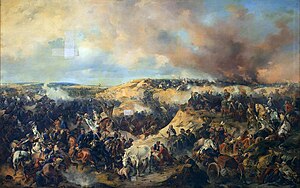

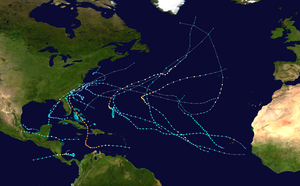












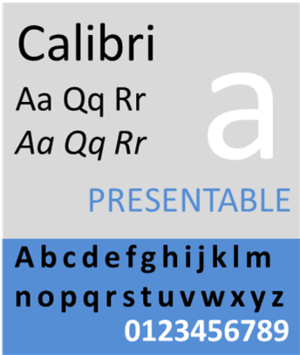





![Tunisie El Djem Mosaique 2, Musée archéologique d'El Jem [fr], El Djem, Tunisia](http://upload.wikimedia.org/wikipedia/commons/thumb/2/29/Tunisie_El_Djem_Mosaique_02.jpg/466px-Tunisie_El_Djem_Mosaique_02.jpg)

















